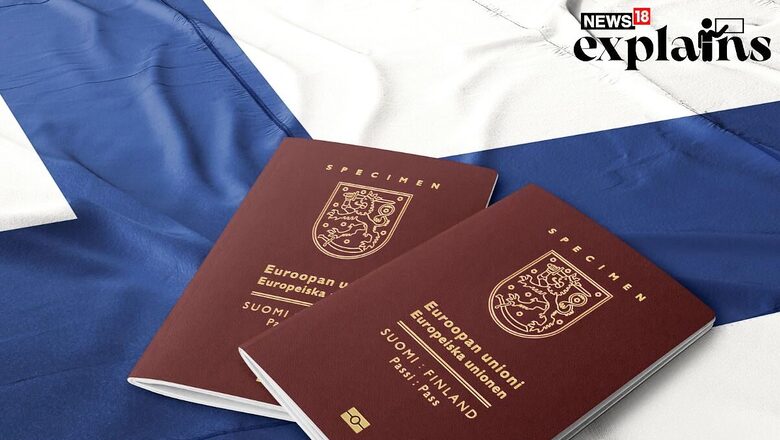
views
Finland has become the first country in the world to launch world’s first digital passports aimed at making travel faster, smoother, and more secure.
The country has launched the groundbreaking trial on August 28 in partnership with Finnair, the Finnish police and airport operator Finavia. The Finnish Border Guard is conducting this trial, which will be carried out at Helsinki Airport’s border control and will continue until February 2024.
The trial has made Finland the first country across the globe to test digital travel documents. For now, it is only valid for Finnish people flying on Finnair to or from London, Manchester and Edinburgh.
What is Digital Passport and Who are Eligible?
The Digital Travel Credential (DTC) is a digital version of the physical passport, which can be stored on a smartphone. It follows the standards of the International Civil Aviation Organization (ICAO), which is working on a global framework for digital travel documents. The DTC is being tested for the first time in the world in Finland.
Currently, only those Finnish citizens will be eligible for the trial who are travelling between Finland and the UK on Finnair flights. The interested candidates would have to download the FIN DTC Pilot digital travel document app, register with the police and submit their data to the Finnish Border Guard four to 36 hours before a flight to the UK. Once they register, they will be able to use their digital document when travelling from and to Finland, according to Firstpost.
With the digital passport, they can verify their identity at Helsinki Airport by having their photo taken and compared with the one stored in their DTC. However, since this is an ongoing trial, the participants would have to carry their physical passport and scan it at the border control in Finland and the UK.
If the pilot project proves to be successful, passengers will no longer be required to carry physical travel documents in the future.
Advantages of digital passports?
The digital passport carries several perks for the travelers as it reduces waiting time and queues at border control. It can also improve security and privacy and prevent identity or document fraud.
The trial was part of the pilot project of the the European Union’s (EU) broader initiative of going high-tech. The European Commission reached out last year to ask if the country would be willing to participate in the pilot project and is financing the project with €2.1 million (Rs 21 crore). Croatia is also planning to start a similar trial at the Zagreb Airport later this year.
Experts say that the digital passports would allow for easier movement of people and will save time at border inspection and make queues more fluid.
Christoph Wolff, Head of Mobility at the World Economic Forum, said “By 2030, international air arrivals are expected to reach 1.8 billion passengers, up 50 per cent from 2016. Under today’s systems, airports cannot keep up with this growth.”
Are Digital Passports Different from E-passports
Digital passport is different from e-passports, which are already in use in more than 100 countries including India. An e-Passport is a chip-enabled passport with a biometric identification card to enhance security and to improve the level of identity verification.
While an e-Passport is a form of physical passport, the digital passport, on the other hand, could be carried in a smartphone and does not require to be carried as a physical passport.
Digital passport around the world
Here are some of the initiatives that the countries are planning to take or have taken with regards to digitalization of passport:
- Poland and South Korea are also working on similar projects like Finland in their respective countries.
- The United States and the United Kingdom are also working on developing digital passports.
- Ukraine became the first country in the world in 2021 to give the same legal status to digital passports as physical ones.
- Singapore introduced a digital health passport called HealthCerts in February 2021, allowing travelers to securely store and present their COVID-19 test results and vaccination records.
- Others like China, Estonia and Israel launched digital vaccine passport for vaccination related access.















Comments
0 comment